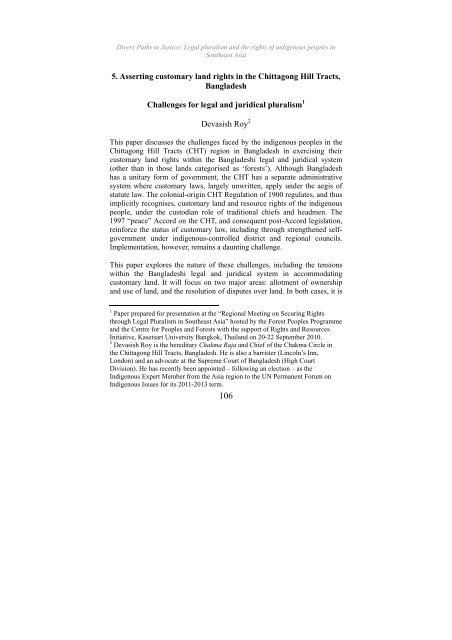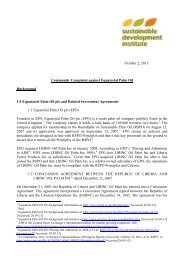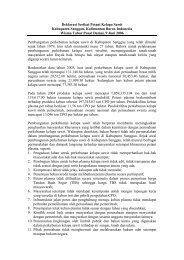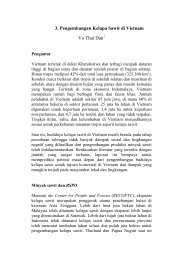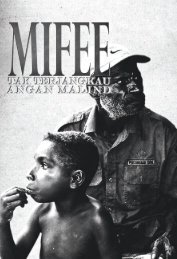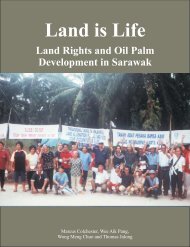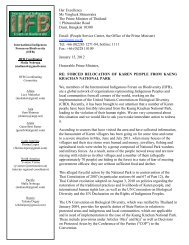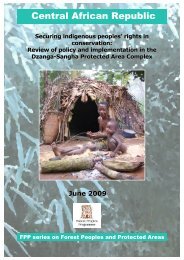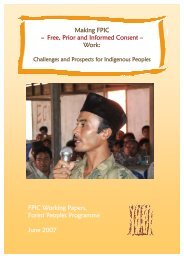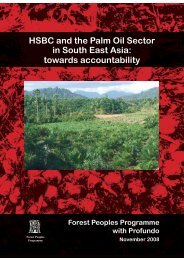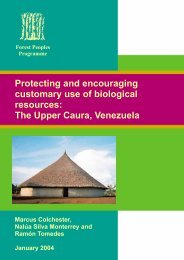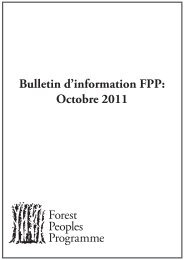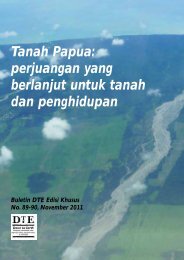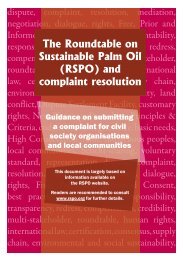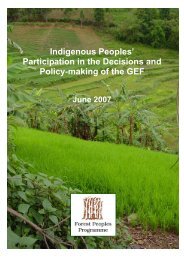Divers Paths to Justice - English - Forest Peoples Programme
Divers Paths to Justice - English - Forest Peoples Programme
Divers Paths to Justice - English - Forest Peoples Programme
You also want an ePaper? Increase the reach of your titles
YUMPU automatically turns print PDFs into web optimized ePapers that Google loves.
<strong>Divers</strong> <strong>Paths</strong> <strong>to</strong> <strong>Justice</strong>: Legal pluralism and the rights of indigenous peoples inSoutheast Asia5. Asserting cus<strong>to</strong>mary land rights in the Chittagong Hill Tracts,BangladeshChallenges for legal and juridical pluralism 1Devasish Roy 2This paper discusses the challenges faced by the indigenous peoples in theChittagong Hill Tracts (CHT) region in Bangladesh in exercising theircus<strong>to</strong>mary land rights within the Bangladeshi legal and juridical system(other than in those lands categorised as ‘forests’). Although Bangladeshhas a unitary form of government, the CHT has a separate administrativesystem where cus<strong>to</strong>mary laws, largely unwritten, apply under the aegis ofstatute law. The colonial-origin CHT Regulation of 1900 regulates, and thusimplicitly recognises, cus<strong>to</strong>mary land and resource rights of the indigenouspeople, under the cus<strong>to</strong>dian role of traditional chiefs and headmen. The1997 “peace” Accord on the CHT, and consequent post-Accord legislation,reinforce the status of cus<strong>to</strong>mary law, including through strengthened selfgovernmentunder indigenous-controlled district and regional councils.Implementation, however, remains a daunting challenge.This paper explores the nature of these challenges, including the tensionswithin the Bangladeshi legal and juridical system in accommodatingcus<strong>to</strong>mary land. It will focus on two major areas: allotment of ownershipand use of land, and the resolution of disputes over land. In both cases, it is1 Paper prepared for presentation at the “Regional Meeting on Securing Rightsthrough Legal Pluralism in Southeast Asia” hosted by the <strong>Forest</strong> <strong>Peoples</strong> <strong>Programme</strong>and the Centre for <strong>Peoples</strong> and <strong>Forest</strong>s with the support of Rights and ResourcesInitiative, Kasetsart University Bangkok, Thailand on 20-22 September 2010.2 Devasish Roy is the hereditary Chakma Raja and Chief of the Chakma Circle inthe Chittagong Hill Tracts, Bangladesh. He is also a barrister (Lincoln’s Inn,London) and an advocate at the Supreme Court of Bangladesh (High CourtDivision). He has recently been appointed – following an election – as theIndigenous Expert Member from the Asia region <strong>to</strong> the UN Permanent Forum onIndigenous Issues for its 2011-2013 term.106


